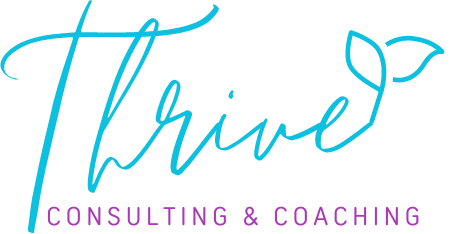You know that feeling – saying “yes” while every fiber of your being wants to scream “no”? The ability to set boundaries isn’t just another life skill – it’s a vital part of self-care that we people-pleasers battle with every day. Trust me, I know this struggle firsthand.
Life without healthy boundaries leaves us feeling resentful, guilty, and completely drained. Research from the National Alliance on Mental Illness shows that people often carry guilt about putting their needs first. The idea that boundary-setting is selfish couldn’t be more wrong. These personal limits shield our physical and emotional well-being and stop us from losing our sense of self.
This piece offers practical ways to set healthy boundaries, especially if you’re someone who always puts others first. Let me help you understand why saying “no” feels so hard and show you how to guard your time and energy without guilt. Think of this as your permission slip to finally put yourself first.
Why People-Pleasers Struggle with Boundaries
People-pleasers have complex psychological patterns that make it hard to set boundaries. We need to understand why it happens to build healthier relationships with ourselves and others.
The need to be liked and accepted
People-pleasers often judge their worth through others’ approval. They put others’ needs above their own to win approval, avoid conflict, or fulfill what they see as their duty. This constant chase for external validation drains them over time.
Most of us want others to view us positively, but people-pleasers take this to extremes. They sacrifice their own wishes to meet others’ expectations. Being liked isn’t just a preference – it’s crucial to their sense of security.
These individuals can’t tell their own priorities from others’. So they struggle to identify what they truly want or hope to achieve. This blurred sense of self makes it nearly impossible to set boundaries because they’ve lost touch with what matters to them.
Fear of conflict or rejection
The thought of negative reactions stops people-pleasers from setting boundaries. They imagine the worst possible outcomes and assume disagreements will lead to complete rejection.
These individuals avoid conflict at any cost and try to prevent others from getting angry. They back down or stay quiet even when someone else is wrong. On top of that, they agree to things they desperately want to refuse.
This constant peacekeeping might seem harmless but creates distance in relationships. It stops connections from growing naturally. The very behavior meant to save relationships often leaves people feeling isolated.
People-pleasers think they’re responsible for everyone else’s feelings and problems. They take others’ actions personally and believe it’s their job to make everyone happy. This puts an impossible weight on their shoulders.
How childhood experiences shape people-pleasing
People-pleasing behaviors often start in early life. Children praised only for being helpful or agreeable learn that their worth depends on what they do for others. This pattern follows them into adulthood as they keep measuring their value by how well they meet others’ needs.
Childhood trauma plays a big role for many people-pleasers. Research from 2023 shows that fawning (a type of people-pleasing) is common in people who survived childhood sexual abuse. Children adapt by becoming super aware of others’ moods and needs, especially their caregivers who they rely on to survive.
Parents with symptoms of personality disorders, like borderline or narcissistic personality disorder, might traumatize children who don’t meet their demands. These kids grow up believing love only comes from what they give, not who they are.
Kids from homes filled with conflict learned to keep everyone happy to avoid tension. As adults, they worry that standing up for themselves will push people away. This keeps them putting others first.
Breaking these deep-rooted patterns starts with realizing that boundaries aren’t selfish – they’re vital guideposts we must trust. Setting personal boundaries might feel uncomfortable at first but leads to more authentic and healthier relationships.
Understanding the Role of Healthy Boundaries
Picture boundaries as invisible fences that protect what matters most to you—your time, energy, emotions, and physical space. People-pleasers need to understand these protective barriers to reclaim their sense of self.
What are personal boundaries?
Personal boundaries help us set limits and rules within relationships. They mark where you end and others begin—setting clear guidelines about how you want others to treat you and how you’ll interact with them. These invisible lines protect your physical and emotional wellbeing while letting you build healthy connections.
Boundaries affect various parts of life. Physical boundaries protect your personal space and touch preferences. Emotional boundaries shield your feelings and energy. Intellectual boundaries safeguard your thoughts and ideas. Time, sexual, and material boundaries also play vital roles in protecting different aspects of your wellbeing.
People with healthy boundaries can say “no” comfortably while staying open to close relationships. They value their opinions, express their needs clearly, and stay true to their values. They also know when to share personal information—avoiding oversharing or being completely closed off.
Why boundaries are vital to self-care
Boundaries aren’t optional extras—you need them to stay mentally and emotionally healthy. They are the foundations of genuine self-care that goes way beyond the reach and influence of bubble baths or spa days.
Life without boundaries leaves you feeling drained, used, and invaded. These feelings breed resentment, anger, and burnout in relationships. No amount of regular self-care activities can fix the stress and frustration that build up without healthy boundaries.
You need to know your priorities and limits to set good boundaries. Self-awareness helps you spot when something doesn’t match your needs. Your body sends signals when boundaries get crossed—a tight fist, an uneasy stomach, or a racing heart. These physical reactions tell you something’s wrong.
Setting limits helps everyone involved—it’s not selfish. Psychiatrist Pooja Lakshmin explains that “real self-care” isn’t about occasional escapes. It’s a steady practice based on values, self-compassion, personal power, and boundary-setting. This dedication to yourself creates room to build lasting relationships and prevents exhaustion from always putting others first.
The difference between walls and boundaries
People-pleasers often mix up walls and boundaries. The difference between them matters a lot to build healthy relationships. Both protect us but work in completely different ways.
Boundaries work like a house with doors and windows—you decide who comes and goes, but the structure lets you connect with others. They bend and flex while honestly showing who you are and what you value. Good boundaries keep others from walking on eggshells around you while protecting you from betraying yourself.
Walls block all intimacy. They show up as fear of being vulnerable, keeping people distant, avoiding personal topics, or hiding when upset. Walls shut people out completely instead of encouraging connection. This makes meaningful relationships impossible.
The main difference lies in purpose and effect: boundaries create safety in relationships, while walls stop relationships from growing. Boundaries flex and open up when needed, but walls stay rigid and closed. Boundaries lead to better communication and deeper connections, while walls create distrust and emotional distance.
Learning to replace walls with healthy boundaries doesn’t mean shutting yourself away—you’re creating space to build genuine relationships based on mutual respect and understanding.
8 Boundaries Every People-Pleaser Should Set
Setting boundaries isn’t just theory—you need to put it into practice. These eight boundaries will help you reclaim your time, energy, and self-worth when people-pleasing habits start taking over.
1. Saying no without overexplaining
“No” is a complete sentence. People-pleasers often feel they must justify their refusals with detailed explanations that lead to debate. A simple formula works better: appreciation + the no + well wishes. Here’s an example: “Thanks for thinking of me (appreciation). I can’t commit to that right now (the no). I hope it goes wonderfully (well wishes).” This keeps things kind without weakening your decision.
2. Protecting your time and energy
Self-care should be non-negotiable. Set aside time that rejuvenates you. These self-promises create room for others in your life later. It might feel selfish at first, but a strong relationship with yourself makes you a better friend, parent, partner, and colleague.
3. Not taking responsibility for others’ emotions
People-pleasers believe they cause and must fix others’ feelings. They drain themselves trying to manage everyone’s emotional state. The reality? You might influence how someone feels but you’re not responsible for their actions, behavior, or emotional expression. Each person must handle their own emotional responses.
4. Limiting access to toxic people
Your peace might require distance from harmful relationships. You could block contact methods, set rules for boundary violations, or stop communication completely. This brings stability, freedom, and better self-esteem. Just prepare yourself for guilt, family pushback, or grief.
5. Setting digital boundaries
Digital boundaries matter more than ever. Block specific times to check emails and social media. Make certain areas in your home tech-free, like bedrooms or dining spaces. Use “Do not disturb” during work or rest. About 71% of people sleep with smartphones nearby—a habit that needs a second look for better mental health.
6. Asking for space when needed
Alone time doesn’t signal relationship trouble—it shows healthy individuality. Be clear about your needs when asking for space while reassuring your partner. Space lets both partners follow their interests and that makes your connection stronger.
7. Declining emotional labor
Women often shoulder emotional labor—managing others’ feelings at their own expense. This invisible, unpaid work leads to burnout. Learn to say, “I don’t have the capacity to discuss this right now,” or point people toward professional help instead of carrying their emotional weight.
8. Prioritizing your own needs
You’ll keep sacrificing your needs until you see them as valid. Start small—identify what truly makes you feel good and schedule these activities as must-dos. Self-care shows you matter too. This isn’t about ignoring others but making sure you have enough to give without running empty.
How to Set Boundaries Without Feeling Guilty
People-pleasers often find that setting boundaries isn’t the real challenge—dealing with the guilt afterward is. Therapists point out that guilt ranks as the top reason people shy away from setting limits in their relationships. The good news? You can learn to set boundaries without the emotional aftermath.
Start with small, low-risk boundaries
Your journey should begin with situations that feel less daunting. You might turn down a casual invitation or request a small workplace accommodation. Each time you set a boundary and make it through, your confidence will grow naturally. A therapist suggests, “Be aware of when you’re running on empty and when you might need to take a step back and recharge”. These small wins create momentum that helps you tackle bigger challenges ahead.
Use ‘I’ statements to express needs
‘I’ statements move the focus from blame to personal experience. This approach helps reduce defensiveness because you own your feelings without attacking others. The simple structure has these parts: “I feel… I need… I ask…”. To cite an instance, see: “I feel overwhelmed when I’m asked to take on extra projects. I need more time to complete my current workload. I’m asking for two weeks before taking on new assignments.”
Expect discomfort and pushback
Setting boundaries brings discomfort that’s both natural and temporary. Boundary expert Nedra Tawwab explains that guilt comes and goes like any other emotion—acknowledge it without dwelling on it. You should expect resistance, especially from people who aren’t used to your newfound assertiveness. Note that negative reactions from others usually reflect their expectations, not poor decisions on your part.
Practice self-compassion
Self-compassion turns boundary-setting from a defensive position into genuine self-care. Speak to yourself as you would to a close friend. Supportive thoughts should replace critical ones: “It’s okay to say no. My needs matter too”. A personal mantra after setting tough boundaries might help, such as “Setting boundaries is an act of self-love”. You might also want a trusted friend as your “boundary cheerleader” to celebrate your wins and lift you up when doubt creeps in.
Setting boundaries with patience and self-understanding does more than protect your energy—it shows others what healthy relationships look like.
Scripts and Examples to Say No with Confidence
Scripts can act as verbal armor when others test your boundaries. These phrases help you avoid improvising under pressure.
Polite ways to decline requests
You can decline requests clearly and briefly with these approaches:
“I appreciate the offer, but I can’t commit to that right now.”
“Thank you for thinking of me, but I’ll have to pass this time.”
“I’d love to help, but I wouldn’t be able to give it the attention it deserves.”
“I need to check my schedule. Let me get back to you after I’ve had time to think.”
Professional responses work best in work situations: “I understand the urgency, but I cannot take on additional projects until I complete my current workload.”
How to handle guilt-tripping
Direct communication helps with manipulation: “I’m more than happy to discuss our differing needs, but I’m not okay with guilt trips.”
You can blend empathy with firmness: “I know this transition is challenging for you—and I know this is the best decision for me.”
Silence speaks volumes sometimes. Your actions can communicate more than words that ever spread.
What to say when someone crosses a line
Straightforward responses work best when others violate boundaries:
“Please don’t speak to me that way.”
“I need some space and will reach out when I’m ready.”
“I’m not comfortable discussing that topic.”
“I value our relationship, but I need to set a boundary here.”
These scripts serve as starting points rather than magic formulas. Their effectiveness comes from your delivery with conviction, eye contact, and a calm, steady tone.
Conclusion
Most people-pleasers find it hard to set boundaries. The experience toward healthier limits ended up creating more authentic relationships and peace of mind. Your needs matter as much as anyone else’s. You teach others to treat you with respect each time you stand firm with your boundaries.
Without doubt, this takes time. You might face pushback from others while battling your own guilt. Notwithstanding that, saying “no” becomes easier with practice and self-compassion. The original discomfort fades once you see the positive impact of putting yourself first.
Be kind to yourself during this experience. People-pleasing habits take decades to form, so changing them needs patience. Take small steps, celebrate wins, and be gentle with yourself when you slip into old patterns.
Setting boundaries creates deeper connections with others. Your relationships improve when you’re genuine instead of acting from obligation. People start to value who you really are – not just what you do for them.
Breaking free from people-pleasing starts with a simple truth: you deserve protection and care, especially from yourself. This self-permission to put your needs first will change how others treat you and how you see yourself. Boundaries give you the greatest gift: understanding that self-care helps you show up better for everyone else.



